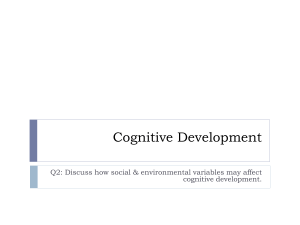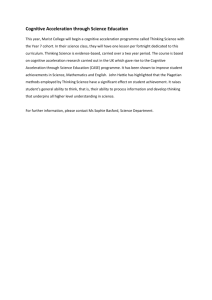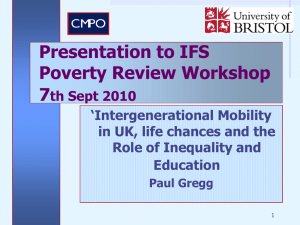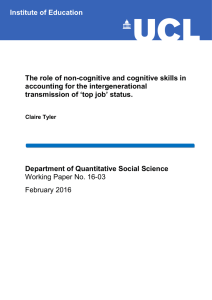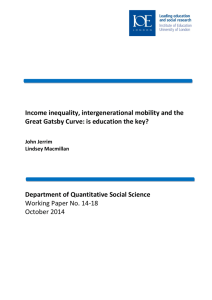Title of the session Schooling, Inequality, and Intergenerational
advertisement
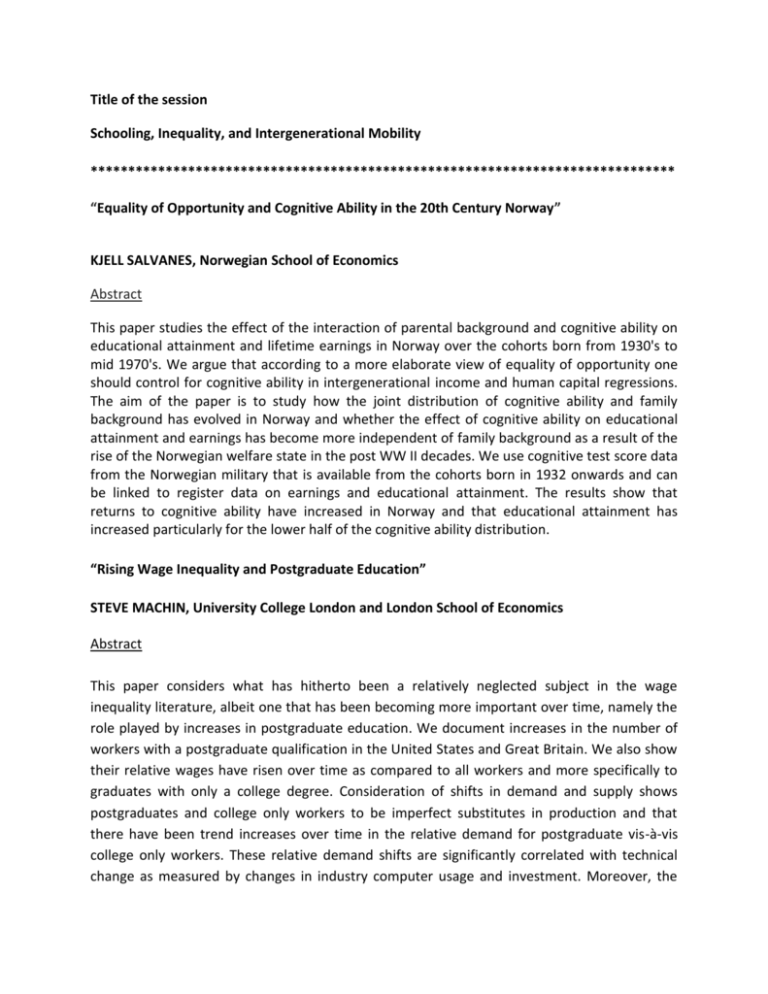
Title of the session Schooling, Inequality, and Intergenerational Mobility ****************************************************************************** “Equality of Opportunity and Cognitive Ability in the 20th Century Norway” KJELL SALVANES, Norwegian School of Economics Abstract This paper studies the effect of the interaction of parental background and cognitive ability on educational attainment and lifetime earnings in Norway over the cohorts born from 1930's to mid 1970's. We argue that according to a more elaborate view of equality of opportunity one should control for cognitive ability in intergenerational income and human capital regressions. The aim of the paper is to study how the joint distribution of cognitive ability and family background has evolved in Norway and whether the effect of cognitive ability on educational attainment and earnings has become more independent of family background as a result of the rise of the Norwegian welfare state in the post WW II decades. We use cognitive test score data from the Norwegian military that is available from the cohorts born in 1932 onwards and can be linked to register data on earnings and educational attainment. The results show that returns to cognitive ability have increased in Norway and that educational attainment has increased particularly for the lower half of the cognitive ability distribution. “Rising Wage Inequality and Postgraduate Education” STEVE MACHIN, University College London and London School of Economics Abstract This paper considers what has hitherto been a relatively neglected subject in the wage inequality literature, albeit one that has been becoming more important over time, namely the role played by increases in postgraduate education. We document increases in the number of workers with a postgraduate qualification in the United States and Great Britain. We also show their relative wages have risen over time as compared to all workers and more specifically to graduates with only a college degree. Consideration of shifts in demand and supply shows postgraduates and college only workers to be imperfect substitutes in production and that there have been trend increases over time in the relative demand for postgraduate vis-à-vis college only workers. These relative demand shifts are significantly correlated with technical change as measured by changes in industry computer usage and investment. Moreover, the skills sets possessed by postgraduates and the occupations in which they are employed are significantly different to those of college only graduates. Over the longer term period when computers have massively diffused into workplaces, it turns out that the principal beneficiaries of this computer revolution has not been all graduates, but those more skilled workers who have a postgraduate qualification. This has been an important driver of rising wage inequality amongst graduates over time. “The timing of income shocks and intergenerational mobility” PEDRO CARNEIRO, University College of London and Georgetown University Abstract We extend the standard intergenerational mobility literature by modelling individual outcomes as a function of the history of parental income, as opposed to a single measure of parental income. Using data for 500,000 individuals in Norway, we present semi-parametric estimates of the effect of the timing of parental income on outcomes measured when an individual is in his early 20s. We find that schooling is maximized when permanent income is high, and income is balanced between the early childhood and middle childhood years. There is however some advantage in shifting income from either the early childhood or the middle childhood period towards the adolescent years of the child. To interpret our findings we simulate models of parental investment in children with more than one period of childhood, under different assumptions about credit markets and the information sets of parents. Simple models emphasizing borrowing constraints do not explain our findings. More promising models feature uncertainty about income shocks, child endowments, and the technology of skill formation.

